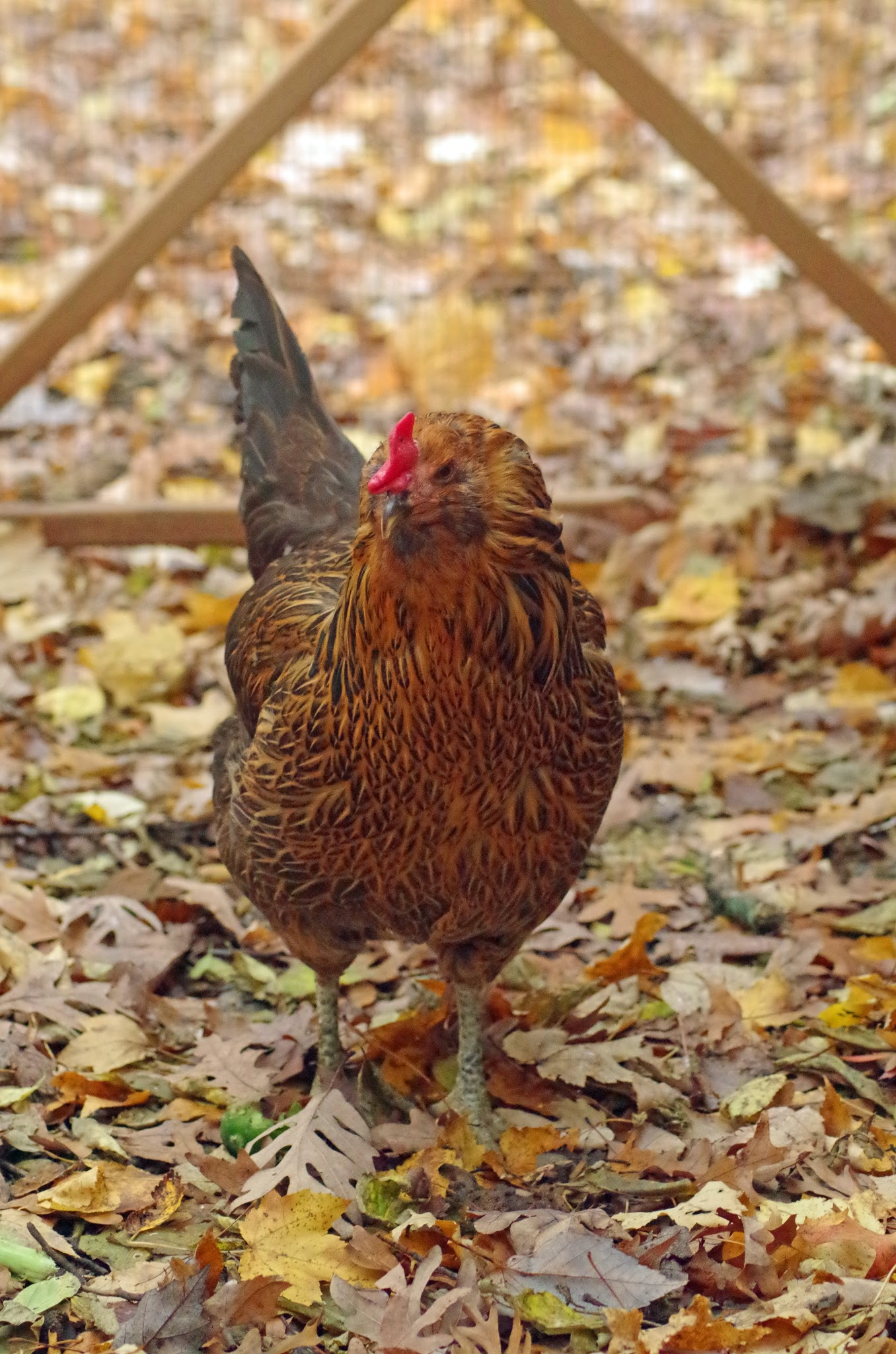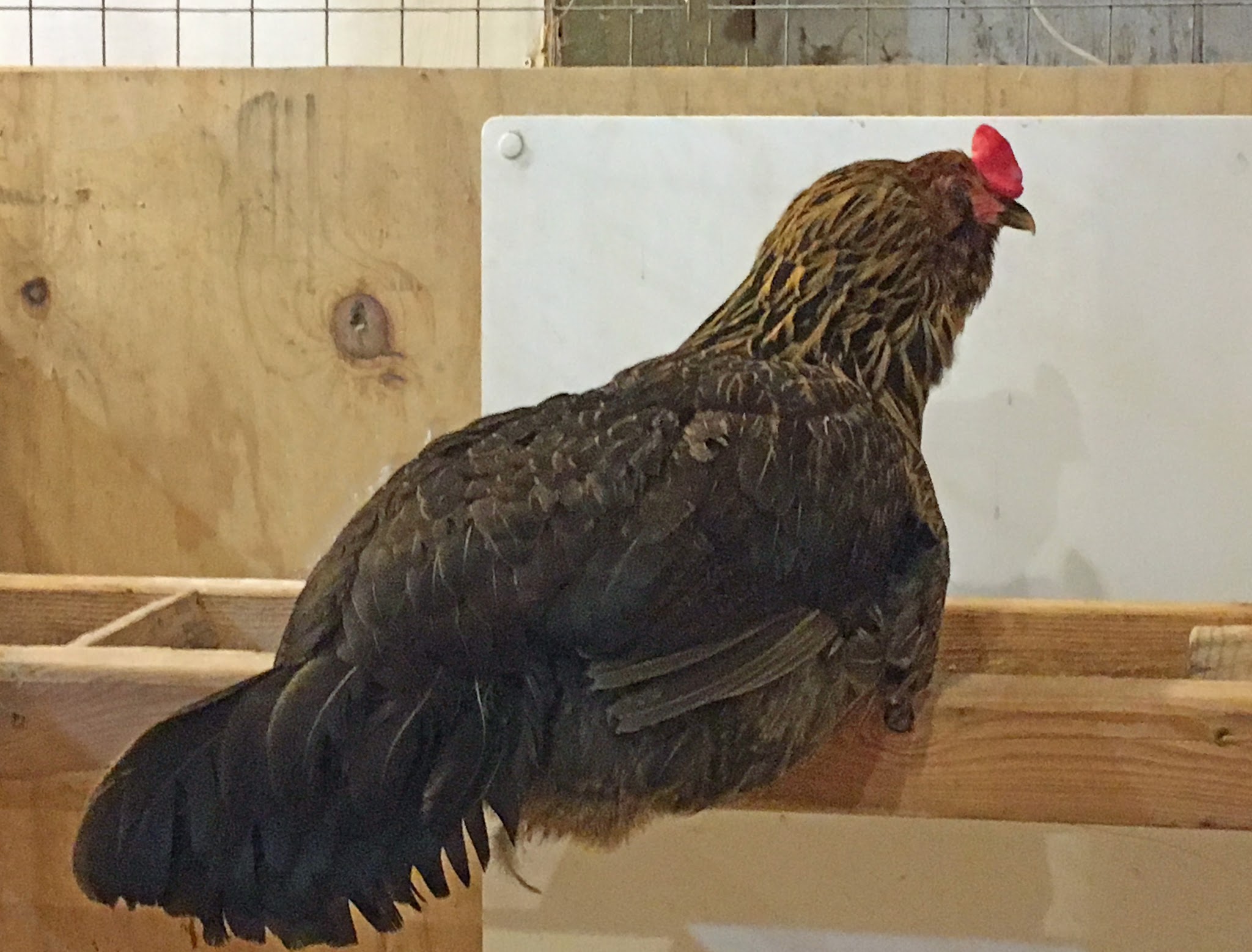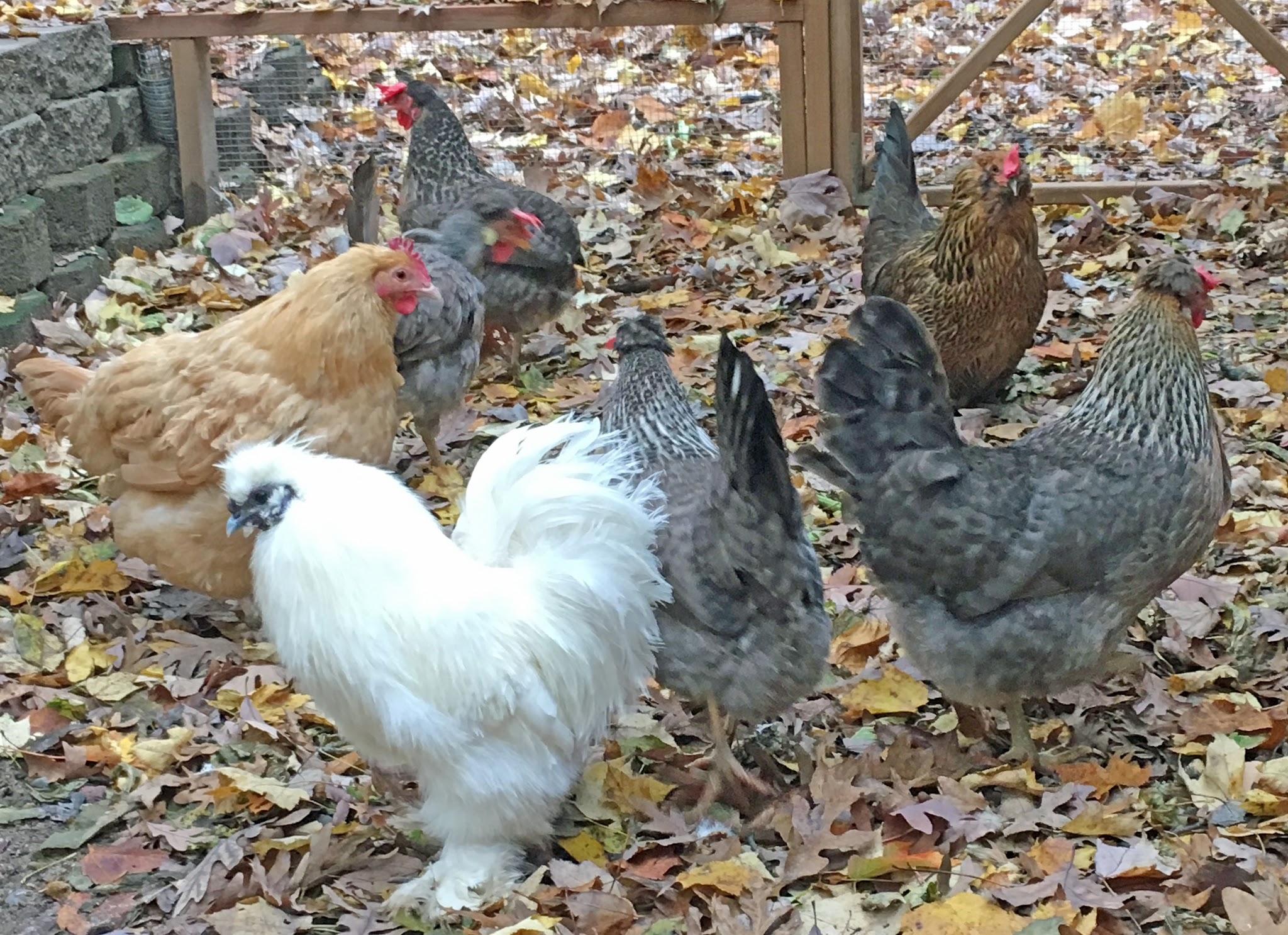Betty the Transgender Chicken – What Happened Next
If you’re a regular follower of the blog, you know the story of Betty the transgender chicken, and you may be wondering what happened next. If you’ve just stumbled across this post you’re probably wondering what in the world I’m talking about. In a sentence, Betty is a hen who spontaneously transformed into a rooster and was rejected by the flock. Yes, really. Hens changing into roosters is a real thing. For the whole scoop, go back and read the original post, which is here. A thumbnail recap follows here, and will segue into the Betty update:
It all started when I noticed that a bunch of hens were after Betty the Easter Egger. It was not a simple situation of grouchy old hens visiting random pecks on a lower ranking hen that gets too close. This was vigilante mob, and it was an all-out attack. I’ve seen this kind of mob violence before – it seems to happen when a hen becomes sick or debilitated. The hens of a nearly similar rank will often take advantage to eliminate her completely from the pecking order. I’d been noticing that Betty had been experiencing some leg weakness – it was getting hard for her to jump onto the roost. I was clueless as to the cause, but apparently the other hens decided that Betty’s time had come. Betty ran around the coop trying to escape the pecks of the other hens to no avail – they chased after her aiming hard pecks at her head and comb. I sighed, went into the coop, grabbed Betty and looked her over. She was bleeding in a couple of places on her comb from well-aimed pecks but otherwise she seemed to have escaped unscathed.
I put Betty in a small pen with no long-range plan, but the immediate plan was that Betty could no longer go back into the coop because she would be brutalized by the other hens. She would have to live on her own. Betty roosted in the small triangle pen that night and the next day I let her out of that small space and allowed her to roam the center part of the pole barn – and that became the routine she followed for most of the summer. Except for her leg weakness, she seemed fine. She was actually a beautiful bird. She was in her fifth year and while she hadn’t laid an egg for a couple of years she didn’t look like an old hen. She maintained an almost militarily erect posture, kept her feathers preened to a shine, and would strut around like she knew that she was a very pretty hen. I didn’t ever stop to think that maybe her posture was a little too erect for a hen and that her hackle feathers had become unusually elongated. And why didn’t I notice that her comb had become so large?
One summer day when I was working in the barn and the roosters were going through one of their crowing cascades, it seemed to me that another voice had added itself to the choir. I tried to trace this new voice to its source, but when I rounded the protruding edge of Coop 2, the only bird standing in that sequestered corner was Betty. I looked at her and she looked at me, then she opened her beak wide and said, “Errrr-errr-errrrrrr!” Then it was my mouth that opened wide as my jaw dropped to hit the floor.
Betty, without question, had undergone sex reversal and had taken on the characteristics of a rooster. For all intents and purposes - and in her own mind - she was a rooster. Something was causing her leg weakness – a tumor pressing on a nerve perhaps? It seems likely that whatever was causing her leg weakness has also shut down her left ovary, stopped the flow of feminizing estrogen, thus allowing masculine characteristics to manifest.
After spending almost the entire summer living on their own, one day in September, pretty much on a whim, I cautiously put Betty in the coop with my six little pullets and waited to see who would attack whom. Well, good news: Nobody attacked anybody! Over the course of the next few weeks, Betty and the pullets bonded. Unhappily, I knew that this was a temporary situation. The pullets were reaching the point in their lives when they would move into Coop 1 – the very coop that Betty had been chased out of. Could Betty sneak back with them? Had enough time passed for the erasure of any acrimonious memory in the tiny chicken brains of the Coop 1 hens?
Betty with her pullet friends
The pullet coop and Coop 1 were separated by a fence with a door in it. And the fateful day arrived when I swung that door open. The full story of integrating the pullets with the old hens is here, but in a nutshell, things went pretty well for the pullets. For Betty, though, things did not go well at all. As soon as the door opened, the trio of Barred Rock hens that rule the Coop 1 roost swaggered in. The pullets gathered in a corner in fear and confusion. And then, Betty jumped up, let out a chicken scream, and jumped feet first at Darcy, the nearest Barred Rock. Feathers flew. I intervened—Betty would have been mauled if had I not picked them up. Their spirit was strong and willing, and they were ready to defend their honor and the honor and safety of their pullet friends, but their legs were damaged and weak. Betty can’t fight. I realized right then that my plan to reintegrate Betty into the Coop 1 flock was a pipe-dream. I had hoped that the Coop 1 hens had forgotten their animosity toward Betty – it didn’t occur to me that Betty might be carrying a grudge. I gently put Betty out of the coop.
All alone again
Betty went back to living in the triangle pen. They were destined, I decided, to spend the rest of their life on their own. I couldn’t see how I could ever get them to get along with the chickens they had lived with their entire life. Then it occurred to me that I had another coop. I originally built Coop 2 for my Silkies—sweet and docile chickens that were being abused and bullied by the bigger hens in my original coop. Over time, I’ve added other chickens to Coop 2, and many of them were Coop 1 rejects who just couldn’t take the pressure of the Coop 1 social order. Angitou is a high-anxiety Polish girl who the hens in Coop 1 loved to chase and peck. Willow is lame. Bonnie is blind. Snowball the Silkie rooster and the seven hens in Coop 2 all get along. They are the hippie peace freaks of the chicken world—constantly and happily clucking “Kumbayah”, grinning, and doing trust falls. Would they accept Betty? Would Betty accept them? How would Betty and Snowball get along – it would essentially be a case of putting two roosters together.
I decided to take it slowly. For the next week, Betty roosted in their triangle pen at night and roamed the center of the pole barn by day. And then, I opened the door and let the Coop 2 chickens into the center of the pole barn as well. The Coop 2 flock loved exploring the new space! When they saw Betty, they really didn’t react at all. It was like they all were saying, “Yeah, it’s a chicken. We’re all chickens. We know about chickens. So, what’s the big deal?” Then they would wander off humming “Kumbayah.”
Betty morosely sits alone
Betty was more standoffish. When the Coop 2 chickens discovered the feeder and water fount in the triangle pen and gathered around for a picnic, Betty found a dark corner in another part of the pole barn. Over the next couple of days that became the new arrangement – I would let the Coop 2 chickens out of their coop in the morning, they would beeline for Betty’s pen where they would party all day, and Betty would morosely sit in the dark corner. Then, one afternoon I found Willow sitting right next to Betty in the dark corner. It’s almost like Willow was saying, “Good choice, Betty! This dark corner is very restful!”
Gradually, Betty joined the group, and by the end of the week was actually following the other chickens into Coop 2. So finally, one day when Betty was in Coop 2, I just shut the door and Coop 2 became their new home. Betty is now a Coop 2 bird, and I hope this is their last move. These past few months have been a series of struggles for this old bird. And their legs continue to get weaker – Betty sits a lot and uses their wings to get back into a standing position. I built a wide flat roost because Betty doesn’t have the strength their feet to hang onto a regular roost bar, and I put a cement block next to it so they can hop onto the block before hopping onto the roost. Ultimately, no doubt Betty’s legs will stop working and this tenacious old bird will succumb. For now, though, they manage. And I know they like being part of a flock again. For the moment, after a melancholy summer, Betty is happy.
Betty blends in with the Coop 2 Chickens
(Postscript: Betty passed away in October 2019. You can see Betty’s obituary here. )









